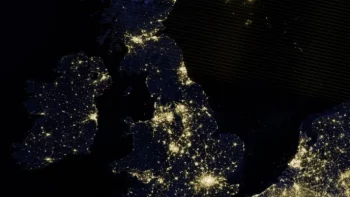A fresh £445,000 cash injection has gone towards getting 10 UK space science projects off the ground across the UK.
The Technology for Space Science initiative is a joint venture between the UK Space Agency’s National Space Technology Programme and the Science and Technology Facilities Council (STFC), part of UK Research and Innovation.
Led by organisations across Scotland, Northern Ireland and England, the projects include using tiny, hair-sized digitally controlled mirrors to counteract the movements of space telescopes and get sharper images.
Another project will see research into ultrasonically assisted augers led by the University of Glasgow, which has received £50,000 in funding.
According to researchers, exploring the subsurface of another planet may require drilling below the ground, but low gravity might make it difficult to create the forces and torques required to operate certain equipment.
Researchers looking into ultrasonic vibration – small, high frequency movements which are known to fluidise soil-like materials – hope to determine if this fluidisation can be applied to a drilling auger, reducing the required force and torque and allow for exploration of terrain using smaller, faster and cheaper, planetary landers.
Funding for UK space science projects like these aims to encourage collaboration between industry and academia, as well as boost tech to support future space exploration through space-based astronomy, cosmology, solar system science and astrophysics.
If successful, this UK-led technology could be used as a basis for instruments on future space missions.
Commenting on the funding, Science Minister George Freeman said: “The UK’s space and satellite technology sector is already worth over £16 billion and growing fast.
“As well as our ground-breaking leadership on projects like the James Webb Telescope and Solar Orbiter missions, our UK Space Agency is supporting hundreds of SMEs developing cutting edge technology.
“From miniature atomic clocks and tiny digitally controlled mirrors that help channel light into moving spacecraft, to new space weather detectors to help warn of devastating solar storms, these new projects will ensure the UK continues to grow as a global science superpower.”
In addition to national funding, the UK is a major contributor to the European Space Agency’s Science Programme, investing approximately £94 million per year.
This gives UK firms opportunities to bid for high value contracts and access to European suppliers and customers and allowing UK researchers to collaborate with European and international partners on pioneering space science missions that would be too large and ambitious for one country alone.
Source: DIGIT

